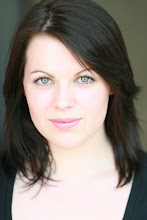- Doing something
- Reflective observation
- Abstract Conceptualism
- Active Experimentation
Dewey’s views on learning are linked to this in that he talks of continually reconstructing your experience and reorganising it so you’re able to better understand its importance. Once you have had time to sit back and reflect on what’s happened you may find that your initial gut feeling was way of the mark. Impulse reactions are not something we can control but they are something we can reflect upon and therefore learn from. This could be a very powerful attribute to have in Professional Networking
As a performer I find Moons research on how to articulate tacit knowledge to be fascinating. I often find it hard to put together the words to describe what I’m thinking and in a professional situation this can be extremely detrimental. People aren’t able to read minds and if you can’t narrate what you are thinking it is almost impossible for others to understand. For example; nobody would want a director who cant project the image in their mind out into words for others to act out. It is essential to be able to articulate your thoughts, again this is something I wish to develop further throughout my career.
Writing a critical reflection would be described by Schon as a ‘reflection-on-action’ process, it is something you have to do after an experience not during it. Whilst writing my journals I have reflected on events gone by where my ‘reflection-in-action’ - what I did at the time - may not have worked out so well. Having the ability to both think on your feet and later reflect on what has happened is vital to growing as an academic and as a person. If you don’t learn from your mistakes and those of others you will continue to make them. I shall use many of these theories on my journey of professional networking and I shall continue to post bloggs to update you on my development!

No comments:
Post a Comment